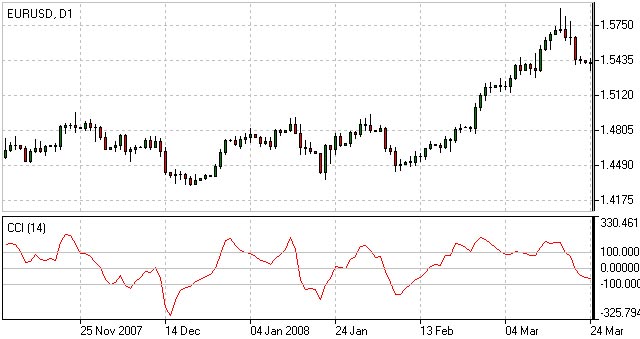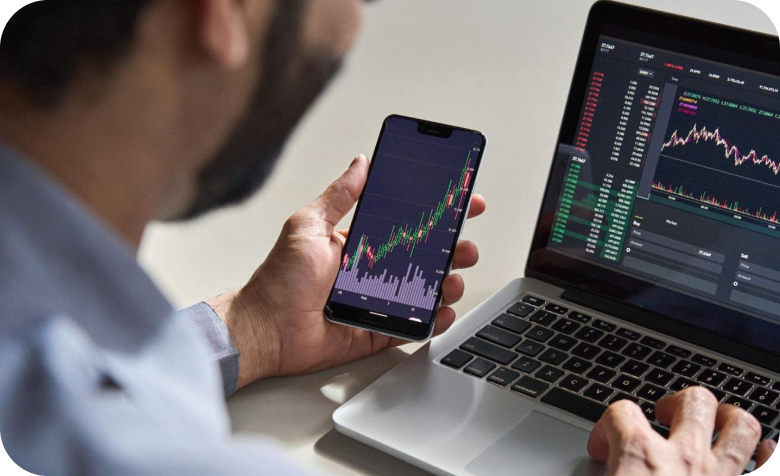- Education
- Forex Technical Analysis
- Technical Indicators
- Oscillators
- Commodity Channel Index
Commodity Channel Index Indicator - CCI Indicator
How to trade using The Commodity Channel Index
Commodity Channel Index indicator oscillates around the naught line tending to stay within the range from -100 to +100. The naught line represents the level of an average balanced price. The higher the indicator surges above the naught line the more overvalued the security is. The further the CCI indicator plunges into the negative area the more potential for growth the price may have. Still the unbalanced price alone may not serve as a clear indicator neither to the direction the price is following nor to its strength.
How to Use CCI Indicator
To use CCI Indicator need to be looked at closely these critical values and the crossing directions:
- Exceeding past the 100 level suggests a possible further upward movement
- Decreasing past the 100 level indicates a U-turn and serves as a signal to sell.
- Decreasing past the -100 level suggests a possible further downward movement
- Exceeding past the -100 level indicates a U-turn and serves as a signal to buy.
- Crossing the naught line upwards from below serves as a confirmation to buy
- Crossing the naught line downwards from above serves a confirmation to sell.
Smaller CCI indicator period increases its sensitivity. Shifting critical levels to 200 allows to exclude insignificant price fluctuations.

Commodity Channel Index (CCI)
CCI Trading Strategy
CCI trading strategy is used by most traders, investors and chartists as an overbought or oversold oscillator. The basic strategy of CCI is to watch the readings above +100 and below -100. The readings above +100 are considered overbought and generate buy signals. The readings below -100 are considered oversold and generate sell signals. Though the Commodity Channel Index was initially developed for commodities, it is also used for trading stock index futures and options.
How to use Commodity Channel Index in trading platform
Forex Indicators FAQ
What is a Forex Indicator?
Forex technical analysis indicators are regularly used by traders to predict price movements in the Foreign Exchange market and thus increase the likelihood of making money in the Forex market. Forex indicators actually take into account the price and volume of a particular trading instrument for further market forecasting.
What are the Best Technical Indicators?
Technical analysis, which is often included in various trading strategies, cannot be considered separately from technical indicators. Some indicators are rarely used, while others are almost irreplaceable for many traders. We highlighted 5 the most popular technical analysis indicators: Moving average (MA), Exponential moving average (EMA), Stochastic oscillator, Bollinger bands, Moving average convergence divergence (MACD).
How to Use Technical Indicators?
Trading strategies usually require multiple technical analysis indicators to increase forecast accuracy. Lagging technical indicators show past trends, while leading indicators predict upcoming moves. When selecting trading indicators, also consider different types of charting tools, such as volume, momentum, volatility and trend indicators.
Do Indicators Work in Forex?
There are 2 types of indicators: lagging and leading. Lagging indicators base on past movements and market reversals, and are more effective when markets are trending strongly. Leading indicators try to predict the price moves and reversals in the future, they are used commonly in range trading, and since they produce many false signals, they are not suitable for trend trading.
Use indicators after downloading one of the trading platforms, offered by IFC Markets.

Not sure about your Forex skills level?
Take a Test and We Will Help You With The Rest


